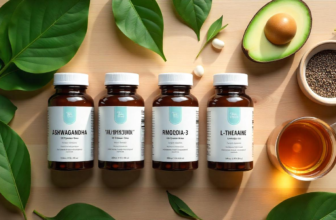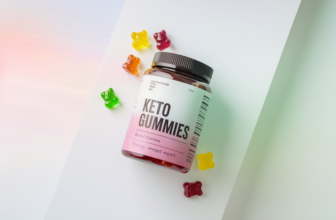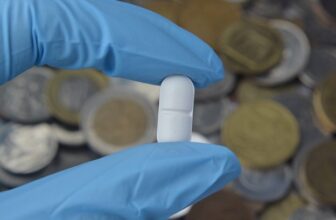Introduction
Imagine this: Sarah is a health-conscious consumer who is exploring a crowded natural foods store. She shops for it at a supermarket filled with multicolored bottles lined on the shelves advertising good health. As she reaches for an omega-3 pill canister, she asks herself, “How are these little health miracles made?” She has a curiosity about the science behind such products, so she wonders whether knowing how they’re made can help explain why they work so well. Let’s have a closer look at dietary supplements—how they’re made, regulated, and marketed.
What's in a Supplement?
Dietary supplements are products made to give your diet a little extra boost of nutrients or other good stuff your body might need. They come in liquids, gummies, powders, and pills, among other forms. These dietary supplements may include a variety of ingredients that are meant to promote your health, including vitamins, minerals, herbs, amino acids, and enzymes. It so happens that these are some well-selling products. According to the Council for Responsible Nutrition, approximately 77% of adult Americans regularly take dietary supplements. To reduce their weight, some people take dietary supplements. So you can see how many people use these products to get healthier.
Heard of “New Dietary Ingredients” in supplements?
Just like when you discover a spicy ice cream flavor at your favorite store—it must pass the test. Before being included in supplements, these foods and other ingredients had to demonstrate their safety and efficacy. They were not a part of our diets before October 15, 1994. The Dietary Supplement Health and Education Act of 1994 established this system in order to ensure that new ingredients can be vetted without curtailing the flowering of new ideas.
The ashwagandha and elderberry are two examples. These herbs were once as ignored as a hidden treasure, and now they’re more popular than avocado toast! Moving them from the drawing board to your corner store is sort of like running a marathon—it requires extensive testing and a thumbs up from regulators to ensure that they’re safe for human consumption.
The Recipe It Takes to Make Dietary Supplements
Dietary supplements require exact measurements and strict adherence to the recipe, much like cake. Here’s how it usually goes:
1. Sourcing the Ingredients: Similar to selecting the ripest fruits for your pie, quality ingredients are sourced from trusted suppliers. Since quality ingredients are the foundation of a good product, this is the most crucial step.
2. The Recipe is Created: Nutrition experts and food scientists join forces like master chefs to develop the flawless blend. They work out how much of each to put into something that’s good for you.’
3. Everything Checks: This is the taste test before you share your cookies. The supplements are tested to ensure their potency, purity, and freedom from undesirable ingredients.
4. Manufacturing the Supplements: The compounds that actual manufacture occur in a Good Manufacturing Practices-compliant facility. It’s like a kitchen that has super-strict rules to ensure that everything is made the same way safely each time.
5. Wrapping It Up: The supplements are then packaged with labels that explain their contents, directions for use, and safety precautions.
The Balancing Act of Dietary Supplements Regulation
The Food and Drug Administration (FDA) oversees dietary supplements in the United States. But there’s a catch: Unlike drugs, these supplements don’t require FDA approval before they go on sale. It’s like sending children into a candy shop without verifying whether the candies are NOT poison!
Ensuring the safety and compliance of their products with regulations is the responsibility of the manufacturers. which makes it difficult for customers to navigate. Although companies need to report serious side effects, they don’t require the FDA’s approval before selling. This means that it is your responsibility to research products before making a purchase.
The FDA: More Lookout Than Gatekeeper
Imagine the FDA as a lifeguard at a crowded beach. Although they are not examining each swimmer before they enter, they are closely monitoring every splasher. But if they see trouble, they’re going to blow the whistle and take action.”
In the realm of dietary supplements, this means that the FDA swoops in after products are already available for sale. They ensure honesty in labels and safety in products. If something smells fishy, they can alert the public and even remove products from store shelves.
Like a wary beachgoer, you are a savvy consumer. Seek out certifications, such as the U.S. Pharmacopeia (USP) stamp. It’s as if it’s a seal of approval indicating the product has been vetted for quality and purity.
Advertising: Treading a Fine Line
But promoting supplements is a little more flexible than recommending medications. The Federal Trade Commission (FTC) is the referee in this case, making sure that advertisements do not try to con you.
The problem is that advertisements for supplements cannot make claims that they can treat illnesses unless they are supported by solid scientific data. It’s permissible to say that a supplement “supports immune health,” but not that it “cures the common cold.” You can make smarter shopping decisions if you are aware of this distinction.
You are in charge of your health journey, so keep that in mind the next time you find yourself browsing the supplement aisles. Do your research, read labels closely, and question everything. After all, your well-being is worth a bit of extra digging, no?
Is it Okay to Market Dietary Supplements for Treating Disease?
To put it simply, no. Dietary supplements can’t be marketed as treatments, preventatives, or cures for diseases without undergoing the same rigorous approval process as drugs. Although supplements can aid overall health, they’re not substitutes for medical care.”
Think of it this way: a supplement may help your heart remain healthy, but claiming that it can fix heart disease would be an exaggeration of the truth and possibly even against the law. These rules protect people from empty promises and motivate them to make wise decisions. For additional information about dietary supplements, keep reading.
What May Appear on a Dietary Supplement Label?
Although supplement labels can make specific claims, they must phrase them in precise terms according on FDA regulations. There are three main types:
1. Health Claims: These describe how a nutrient or food ingredient might reduce the risk of a health problem. An example: “Calcium may help keep your bones strong.”
2. Nutrient Content Claims: These indicate the amount of a nutrient in the product. Kind of like the phrase “lots of vitamin C” used to mean that there’s a fair amount in there.)
3. Structure/Function Claims: These describe how an ingredient may affect the structure or function of your body, as in “helps support a healthy immune system.” But they’re not allowed to suggest that the product cures or prevents a disease.
And being aware of these claims can help you make more informed decisions when choosing supplements.
Ensuring That Dietary Supplements Are Safe and of High Quality
Good Manufacturing Practices (GMP) are guidelines to ensure dietary supplements are consistently safe and high-quality. These practices span everything from the sourcing of ingredients to the packaging of the final product. Some key parts of GMP are:
• Standard Operating Procedures (SOPs): These are prescribed methods that control the way a supplement gets made in order to maintain uniformity.
• Quality Checks: Testing of ingredients and final products on a regular basis ensures that they are safe as well as effective.
• Teaching Employees: There’s a proper way for workers to prepare supplements, and they need to be trained in this; otherwise, there could be mistakes or contamination.
Companies can ensure quality by adhering to GMP and building credibility among the customers. Companies have to follow dietary supplement labeling guidelines. Ever wondered how the supplements you take get made?
.
The Profitable Business of Supplement Production
The dietary supplement market has been on a roll. It reached a staggering $51 billion in the United States alone last year and is only gaining momentum. This growth presents a goldmine for manufacturers with ample opportunities to hit the jackpot.
What is making so many bucks for this industry? It’s like an option buffet; well, there is
• Type of Products: From basic vitamins to funky herbal blends, there’s a product for everyone.
• The Online Shopping Boom: More people are clicking ‘add to cart’ from their couches, and, as a result, the sale of supplements is soaring.
• Health-Conscious Consumers: With people becoming more conscious about their well-being, they’re grabbing for supplements to help them hit health goals.
But not everything is smooth sailing. The market is as competitive as a busy city block, and companies must have compelling offerings to maintain their share of the pie.
The Future of Dietary Supplement Manufacturing
The future looks as exciting as a sci-fi movie for this industry. Here’s what’s coming:
• Custom Supplements: Think of supplements made specifically for you—ones created with your unique health needs and DNA in mind. Companies that crack this code could strike gold.
• Verde es Bueno: As more people will want to do right by the planet, sustainable raw ingredients and packaging will be expected.
• Rules in Flux: As the industry expands, so could its rules. It will be critical to keep track of these changes in order to stay out of hot water.
How Vitaquest Can Help You Bring Your Supplement Vision to Life
Vitaquest basically acts as a one-stop store for companies that sell supplements. They offer:
• Brainy Formulas: Work together with food scientists and nutrition experts on robust digs.
• World-Class Factories: Their factories are cleaner and more efficient than your grandmother’s.
• Crystal Ball Insights: Insider info on market trends to inform your decision-making.
By collaborating with Vitaquest, brands can smooth out manufacturing hiccups and increase their visibility in the supplement market. After all, isn’t it better to swim with a strong partner than sink alone in this hyper-competitive world?
Dietary Supplements: Questions and Answers (FAQ’s)
- What is in dietary supplements?
Dietary supplements are composed of numerous components. These products contain vitamins, minerals, herbs, amino acids, and other health-promoting substances.
- So, how does the government monitor these supplements?
Regulation of dietary supplements falls under the purview of the FDA through use of the Dietary Supplement Health and Education Act. They ensure that these products are safe and accurately labeled, but they do not approve them before they reach store shelves.
- Do I get a free pass on eating well if I take supplements?
Supplements can help fill in the nutritional gaps, but they aren’t a replacement for a balanced diet. Whole foods should be the primary source of your nutrients.
- How do I know if a supplement is safe to take?
Seek out products that have been vetted by independent entities such as the U.S. Pharmacopeia. It’s also wise to talk with your doctor before beginning a new supplement.
- Health claims that these supplements can make
Supplements can make claims about health benefits, nutrient content, and whether they have an impact on your body’s structure or function. But they can’t say that they cure, treat, or prevent diseases.
6. Are supplements from Pegasus considered dietary supplements?
Pegasus supplements are indeed categorized as dietary supplements. In order to support different facets of health, such as energy, immune function, mental clarity, and general well-being, they are made to supply nutrients, such as vitamins, minerals, and herbal extracts.
Wrapping Up
There are thousands of products and options available in the dietary supplement market. Both buyers and sellers need to be aware of these supplements, from their manufacturing to their sales. The future of these products will be determined by the balance of quality, safety, and demand as new ideas in this field emerge. What knowledge will you carry with you to make informed decisions regarding your health in the future?
Tags: Create Your Own SupplementsDietary Supplement RecipesDIY Dietary SupplementsHome-Based Supplement FormulasHomemade SupplementsHow to Make Dietary SupplementsNatural Supplement MakingStep-by-Step Supplement GuideSupplement Ingredients and RecipesSupplement Manufacturing Guide








[…] Keto gummies may help the weight loss journey for individuals already following keto, but they are far from being some magic bullet. If you follow the keto lifestyle, then fat burners will help to maintain a good level of ketosis, but they still need to be used along with other measures like proper diet and exercise. Click the link if you want to know more about K3 Spark or how to make dietary supplements […]